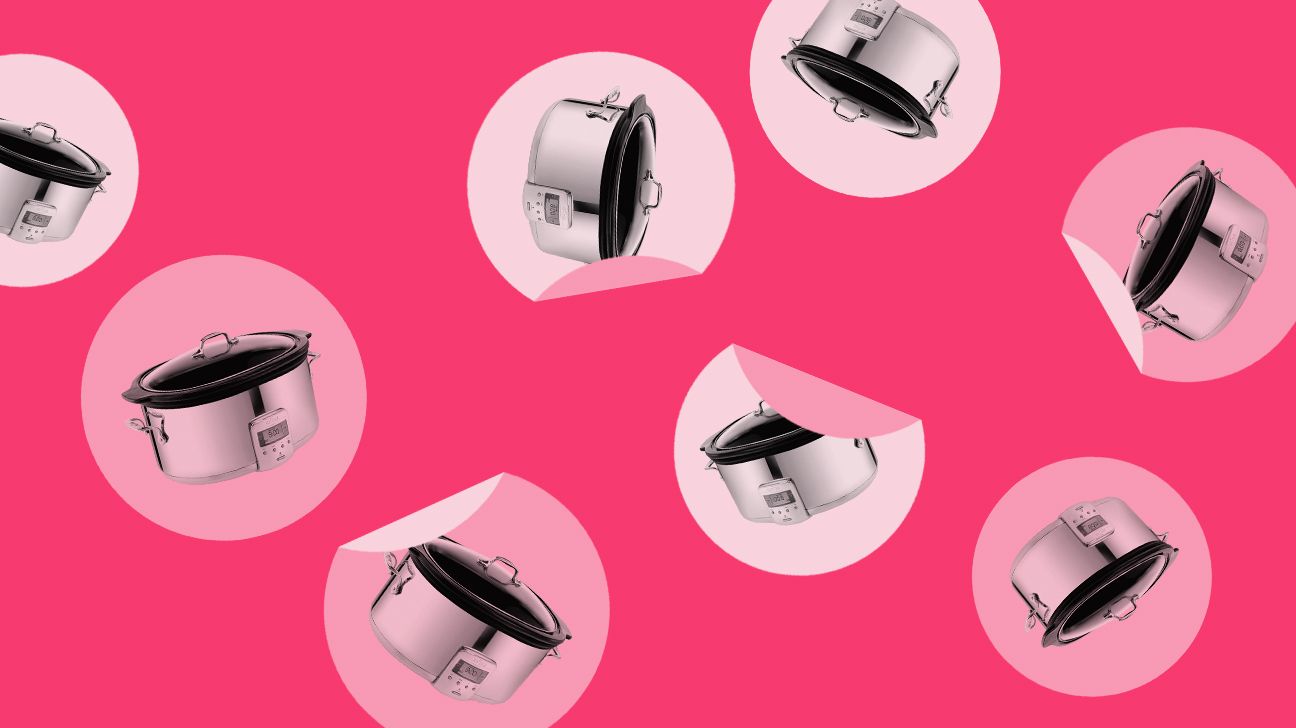Today’s programmable slow cookers often come with the ability to cook food for up to 24 hours, as well as automatic warming settings that can stay on for just as long. But when it comes to slow cooking the day away, just because you can doesn’t mean you should.
When you’re whipping up a meal in a slow cooker, there are a number of (often unspoken) limitations on how long you should leave food in the appliance, both when cooking and keeping it warm.
Wondering how long is too long? Read on.
If you’ve ever gotten stuck at work for a few hours longer than anticipated, you may have come home to mushy vegetables, chalky meat, or a rather bland soup in your slow cooker.
While slow cooker recipes are designed to cook for extended periods of time, they can still become overcooked if left on the wrong setting for too long.
In general, it’s best to stick to the indicated cook time on the recipe you’re following. Most slow cooker meals take 8-12 hours on low or 4-6 hours on high, but there are also recipes for slow-cooked meat that take up to 24 hours. If you want to avoid overcooking your dish, follow the given guidelines as closely as possible.
Concerned about getting home on time to turn the slow cooker off? While older slow cookers often require you to manually switch between settings, today’s programmable slow cookers include a digital timer that automatically changes the appliance over to the warming setting after the set duration.
This way, it will be cooked to perfection — no matter when you end up getting home.
Extra-fancy models, such as the Hamilton Beach Programmable Temp Tracker Slow Cooker, come with a temperature-tracking probe to insert into the dish.
You can then set the slow cooker with the proper cooking temperature, and when it reaches that point, it will either switch to warming or maintain the temperature, depending on your preference. Cool, right?
There’s also the issue of how long you can leave your slow cooker on its warming setting — after all, it’s tempting to leave the appliance on warm during holiday gatherings or other events. Most appliances will automatically shut off after 20 or so hours on this setting, but you shouldn’t leave food in a slow cooker for an extended length of time.
The general rule of thumb is that 2-4 hours is the maximum length of time you can leave food in a slow cooker on warm. After this, it needs to be cooled and transferred into the refrigerator.
Why? Most warming settings keep food at around 145°F (63°C), which is extremely close to what the USDA refers to as the “Danger Zone.” Between 40-140°F, bacteria grow extremely quickly, doubling in number in as little as 20 minutes.
If you’re opening the lid frequently or the slow cooker isn’t maintaining the temperature precisely, your food may become spoiled if you leave it out for too long.
Besides limiting the time you leave food in the slow cooker, there are a few other ways you can ensure meals are cooked safely and stay fresh for as long as possible.
- Thaw meat before cooking: It might be tempting to put a frozen piece of meat into your slow cooker, but when you do this, the meat takes longer to cook and its interior may not reach a safe temperature in standard cooking time.
- Keep the lid on: The internal temperature of a slow cooker drops 10-15 degrees every time the lid is opened, slowing the cooking process by 30 minutes. So resist the urge to peek!
- Don’t overfill the pot: You should never put so much food in your slow cooker that it’s more than two-third full. Not only can this cause it to overflow, but it can also lead to undercooked food, as it takes longer for the contents to get to temperature.
- Double-check with a thermometer: When in doubt, don’t be afraid to double-check the temperature of your meal using a kitchen thermometer. If it’s not at the recommended temperature, leave the dish to cook for more time.
Slow cooker recipes to simmer and stew
Try these tasty recipes to get your slow cook on. (Just don’t leave ’em in too long!)
While the slow cooker is known for being a hands-off appliance, it’s important to follow safety precautions each time you break it out. Sticking to a recipe’s slow cooking parameters and not letting your food bathe in the pot all day could save you not only from over-done meats and veggies, but from food-borne illness as well.


